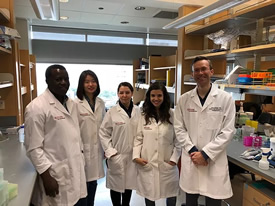Research
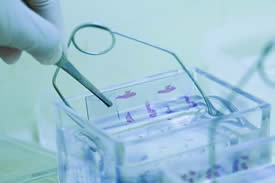
The department supports research as an important academic mission for our faculty and staff. The research interests and activities of our faculty cover a broad range that includes basic science as well as clinical and translational research. Particular areas of strength in the basic sciences include:
- biomedical imaging
- developmental genetics
- cell polarity and morphogenesis
- extracellular matrix
- protein folding and molecular motors
Dr. Tessa Bergsbaken's Lab
https://www.bergsbakenlab.com/
Dr. Bergsbaken's lab studies a subset of CD8+ T cells that traffic to the tissue and persist there after infection or immunization. These tissue-resident memory T cells (Trm) play an important role in early defense against pathogen challenge at barrier surfaces. We use bacterial and viral pathogens to understand the mechanisms of T cell activation, maintenance, and function in the intestine and other mucosal tissues in response to local infection.
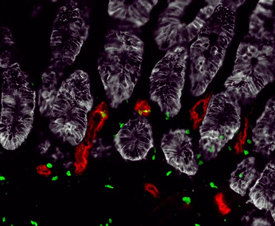
Dr. Karen Edelblum’s Lab
https://www.edelblumlab.com/
Dr. Edelblum’s lab focuses on understanding the role of gamma delta intraepithelial lymphocytes (IEL) interactions within the intestinal epithelium in the regulation of mucosal innate immunity. They use both in vitro and in vivo models in conjunction with state-of-the-art imaging techniques to identify how gamma delta IEL motility can be used as a potential therapeutic in the treatment of inflammatory bowel disease.
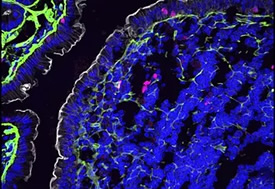
Dr. Yosuke Kumamoto’s Lab
https://kumamotolaboratory.wixsite.com/mysite
Dendritic cells (DCs) are a critical cell type for igniting and regulating adaptive immunity, by integrating signals from innate immune sensors with their high capacity of antigen presentation. However, considerable phenotypic heterogeneity exists among DCs and functional differences between DC subsets have been described. Our goal is to understand the cellular and molecular basis for the division of labor between DC subsets and apply the knowledge for developing strategies for prevention and cure of diseases. In particular, our current research focuses on the regulation of adaptive immunity by a DC subset expressing a C-type lectin CD301b/MGL2. We use mouse models to examine their role and its mechanism in different types of immune responses.
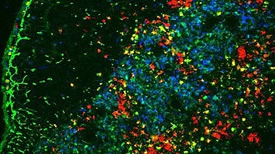
Dr. Dongfang Liu's Lab
http://njms.rutgers.edu/departments/labs/dongfang/index.cfm
Dongfang Liu, PhD recently joined the Department of Pathology, Immunology, and Laboratory Medicine and the Center for Immunity and Inflammation as an Associate Professor. Dr. Liu’s current research is primarily focused on the immunobiology of chimeric antigen receptor (CAR) T and NK cells, immunoreceptors, CAR immunotherapy, and HIV-specific CTLs in chronic HIV and its related malignancies, with a focus on immunological synapse biology and its clinical applications.

Dr. Dane Parker’s Lab
https://www.daneparkerlab.com/
Dr. Parker’s work encompasses immunology and microbiology. We look at the interface between the immune system and infectious disease. This spans bacterial pathogenesis, examining bacterial products important for causing infection, the host immune response and the pathways important for clearing infection, the role of different immune cells in infection and understanding how these cells function to clear bacterial infections.
